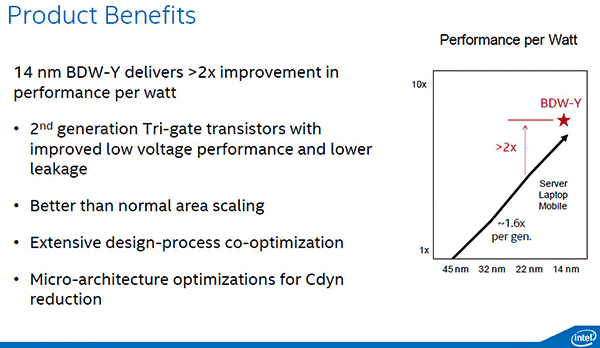Are they are the AMDs of the mobile world?
Intel would have to go to extraordinary lengths to tarnish their brand to the level of AMD.
There is a big, yet subtle difference between selling your products for less than you'd like because you can't make them cheap enough (Intel's case), and selling your products for less because your competitor(s) are more desirable due to their reputation (AMD's case). Additionally, Intel just wants money -- unlike Apple, they're okay with using their elite reputation to peruse non-elite markets. I think Apple's stance on that may change, and they'll start catering to developing markets as Samsung and others have begun to challenge Apple's dominance, but that's an idea for another thread.
Even if AMD had a superior cost structure, superior performance -- the manufacturing capacity, execution (and whatever else I'm missing) -- to beat Intel by a significant margin, they still wouldn't be better than
Intel. It's a household name. It's like Coca-Cola, or Apple. Consumers are hooked to the Intel heroin, and there's just no substitute.
Sure, AMD's financials would be better, but the world would still feel like something's missing. It's extremely difficult to change the market's perception of your business, unless you do something phenomenally amazing or phenomenally stupid. AMD's claim to fame was being the budget alternative to Intel -- they were allowed to clone Intel's chips and become a secondary supplier to IBM. They were, and always will be, a distant second.
________
I think that's a big part of the divide between members here. There's no doubt there's quite the dichotomy in thinking on this forum. Some people despise Intel, because they underhandedly gained their position. Others love them, because -- in spite of their transgressions -- they've given people incredible products, time and time again. Really, though, I think there's a third group -- those that can see that Intel's "incredible products" are truly incredible sometimes, but other times they're only incredible because Intel wants you to think they are, despite their competitors having something comparable or better.
On the AMD side of the fence, some love them, because they seem to break the corporate self-interest stigma, and do some really altruistic things. Others have gotten so tired of their inability to produce competitive products that they've written them off entirely. A small few can recognize where AMD has done great things, but recognize the odds have always been stacked against them, and they are now more than ever.
I feel like a lot more of us are in the open-minded category than others may be willing to believe, and although there are a small handful of people on both sides of the fence that are truly toxic. They ruin this forum for themselves and for everyone else.






